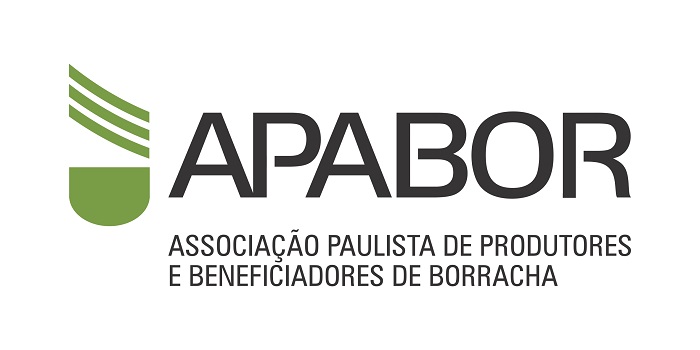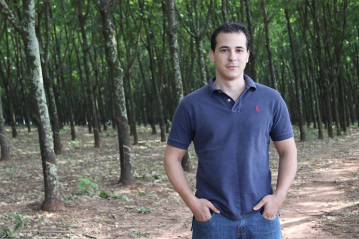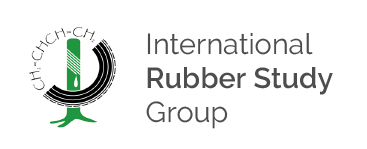

He is responsible for the Statistical Monitoring Program of the National Association of Natural Rubber Producers in Brazil (ABRABOR).
Post graduated in Project Management and have been active in the Brazilian NR industry for the past 10 years.
On May 13, 2020, at 5:00 pm (Brazil time), 164 people from 13 different nationalities signed up to participate in the charity webinar “Strategic and contingency plans for rubber plantations in Latin America”. The meeting brought together participants from Brazil, Argentina, Peru, Venezuela, Colombia, Chile, Ecuador, Costa Rica, Guatemala, Mexico, Panama, United States and Spain.
All the income collected at the event went to Apabor's Solidarity Program, which has a project to distribute Basic Baskets to the families of Brazilian rubber tappers who, at the moment, are being hard hit by the interruption of the natural rubber trade in Brazil.
About 1800 families benefited from the action and received food and hygiene kits, with ANIP alone being responsible for the donation of 1,500 basic food baskets. “We believe in group work, where the union of efforts always brings more benefits to everyone. For this reason, we are very pleased to participate, together with Apabor, in this solidarity action that allows us to help a greater number of people in this difficult time ”, says Klaus Curt Müller, executive president of ANIP.
Following the webinar, the first presentation was by the Salvatore Pinizzotto, Secretary-General IRSG, who brought the public a contextualization of the market today. In reference to the failure of the Brazilian Football Team in the 1966 World Cup and its success in the next competition in 1970, Pinizzotto opened his presentation talking about the need to reimagening the Natural Rubber Productive Chain.
“[For the Brazilian Team] Making this turnaround required innovation (...) and leadership, both in management and in the field. The result: by reimagining everything, Brazil came back stronger. While businesses around the world are considering how they can recover from the problems inflicted by the coronavirus the Brazilian journey from failure to triumph, provides food for thought”, explained the Secretary-General.
Pinizzotto also explained how the Natural Rubber Productive Chain has been negatively impacted by the current crisis caused by COVID-19, starting with the reduction in forecasts for world GDP and the consequent contraction in consumption, especially by its main industry, the tire industry. Quoting Mr William Hynes, OECD Acting Head of the New Approaches to Economic Challenges Unit (NAEC) : “Pandemics are not linear - they are exponential. When things are interrupted, they do not always return to a steady state. We are talking about complex systems ”, Pinizzotto concluded companies and organizations in the rubber sector should rethink their business model as they return to full. This is a unique opportunity for all stakeholders involved in the natural rubber economy to be innovative and through innovation to foster resilience, adaptability and long term sustainability.
Then, engineer Yvette Richards talked about subsidies for plans to stock raw materials in the field. She showed examples from the history of the storage of Brazilian natural rubber from extraction in the Amazon to the present day. The professional also presented a series of technical criteria’s to ensure that, in case of need, the producer can stock his rubber on the property with guaranteed quality preservation, launching Apabor's Technical Storage Note, of which he was Co-author, to close your presentation with a golden key.
Then, Gunther Lotmman, a specialist in natural rubber, presented the participants with the possibilities of product innovation and added value, questioning the need to create a diversified market strategy, varying products for tires with auto parts, medical industry and even environmental services. . The launch of the SLTC Innovation Committee, of which Lottmann is Director, left the basis for building these alternatives.
Finally, Diogo Esperante, Fabio Magrini, executive director and president Apabor, respectively, and Paulo Garbelotto, president of ABTB, joined the speakers for a question section. In his speech, Esperante pointed out that in addition to the great opportunity to bring pertinent information and help Brazilian rubber tappers, the event made it possible to take another step in the integration of the Latin American Natural Rubber Market, “so that one day we can speak not about Brazilian, Colombian, Mexican or Guatemalan rubber, but on behalf of a Latinamerican rubber! ” concluded the director.

